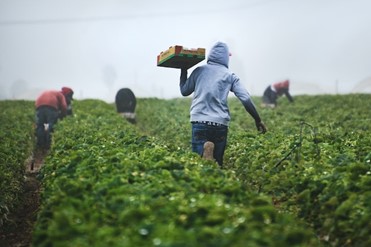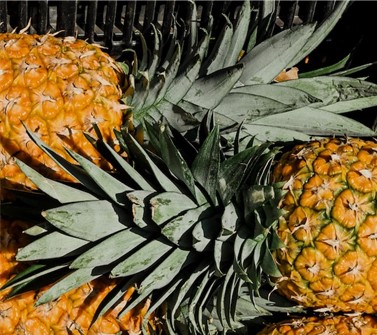In the realm of agricultural development, the role of sustainability has risen to paramount importance. Wendy Gady, the newly appointed ADC Director, stands at the forefront of this movement, advocating for practices that not only ensure bountiful harvests today but also safeguard the earth’s resources for generations to come. In the following article, an exploration of how Wendy Gady’s leadership is driving positive change in the agricultural landscape.
Many consider Hawaii to be one of the most beautiful places on earth. The islands have beautiful waters, picturesque mountains, and bountiful crops.
Newly-elected Executive Director of The Agribusiness Development Corp., Wendy Gady, doesn’t only wish to keep the tropical paradise that way, she also wants to cultivate what the land can provide to the residents – through sustainable agriculture.
But why is it important to source food sustainably and ethically?
Let’s delve into Wendy’s new role and longtime passion: sustainable agriculture.
Wendy Gady Takes on the Role of the ADC Executive Director
After months of search, The Agribusiness Development Corp. appointed Wendy Gady as their Executive Director – and she fits the role perfectly.
According to Warren Watanabe, one of the ADC Board of Directors, Wendy Gady of Hawaii has all the credentials to boost the island’s economy through sustainable agricultural practices.
Watanabe added that Gady possesses “exceptional leadership skills, strategic insights and a focus on broad engagement across the agriculture sector.”
Before she took on the role, Wendy Gady was a farm manager at one of the largest organic farms in Hawaii.
Sustainability Isn’t Just an Ethical Practice – It’s Also a Passion
Before moving to Oahu, Wendy Gady was born on the mainland and grew up on a farm in Iowa. To her, organic produce was her and her family’s primary food – not a luxury one must pay extra for.
As many know, organic produce also tastes better, and that has always been the food quality that Wendy Gady seeks.
In one of her blogs, Wendy Gady noted the difference between the commonly consumed avocados to the local Oahu ones. To her, the Oahu avocados taste like butter.
Oahu avocados also have a more vibrant color and didn’t seem to oxidize as much as the commercial one. However, to Wendy Gady, the quality of organic produce isn’t the only advantage of sustainable farming.
Farm-Fresh Feasts: The Impact of Sustainable Agriculture
Beyond organic food’s nutritional benefits and distinctive taste, sustainable agriculture also benefits the environment – and the farmers who tend to the crops. Moreover, sourcing local produce can also improve Hawaii’s economy.
Let’s take a look at the advantages of sustainable agriculture.
 Economy
Economy
Currently, 85% to 90% of Hawaii’s foods come from the mainland. In addition, in a 2016 statistic by the Hawaii Department of Agriculture, the state’s top 10 imported commodities are:
- Oranges
- Lettuce
- Onions
- Apples
- Potatoes
- Grapes
- Carrots
- Tomatoes
- Melon
- Broccoli
It’s worth noting that this produce can also grow in Hawaii – as the land has naturally rich soil and a suitable climate.
However, sustainable farming is impossible without the farmers themselves.
Residents
Wendy Gady has long promoted the advantages of Hawaii’s self-sufficiency. Hawaii has an unemployment rate of 3.5% to 4%. Many of them plan to move to the mainland for better job security. After all, in 2018, over 67,000 native Hawaiians did just that.
However, if native Hawaiians are provided with more jobs, they will be less likely to relocate.
Hawaiian natives are also more familiar with the local produce– such as pineapples, coconuts, and bananas. But they’re also more likely to know the tropical fruits than other non-Hawaiians – such as mangosteen, rambutan, and breadfruit.
Therefore, it’s easier for them to farm these fruits compared to non-natives.
But Wendy Gady emphasizes the importance of sustainable agriculture for the next generations – not just todays.
Environment
Being a longtime Hawaii resident, Wendy Gady prioritizes the locals and economy without sacrificing Hawaii’s panorama. To her, the state is already beautiful as is. And residents should work around the existing landscape instead of altering it.
Hawaiians, after all, have always felt a connection with nature. Despite modern-day farming techniques, many still prefer sticking to the ancient way of farming passed down to them.
In Polynesian Mythology, Lono is considered to be the god of agriculture, rainfall, and fertility. Therefore, like many Hawaiians in ancient times, food isn’t just sustenance – it’s a sacred gift.
In an article by The Guardian, they interviewed Kaipo Kekona, a Maui resident who makes conscious efforts to preserve the land by planting fruit-bearing trees in drought-stricken areas. To Kekona, “We believe that land is the chief, the people its servants.”
Kekona added that residents like him do this because eco-conscious farming has long been a part of Hawaiian values – they still prefer it that way and want future Hawaiians to continue the practice.
So does Wendy Gady.
Summary
Newly appointed Executive Director of the ADC, Wendy Gady, is ready to take on her role. She’s highlighting the importance of sustainable agriculture and how it benefits the Hawaii residents, economy, and environment.



 Economy
Economy


